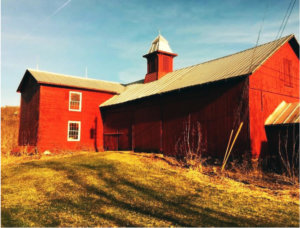Windows to a multicultural world

Staff report
Want to know what’s happening to help young people, their teachers and their parents learn about black history and a full range of black experiences, and in doing so foster racial justice? Start in Charlotte at the Clemmons Family Farm (CFF). Closed for tours this year due to the coronavirus, CFF has remained active on many fronts, including a pivot away from its place-based arts and culture programs at the farm and in schools and communities around Vermont to programs through Zoom and social media.
“There are many forms of activism and many ways to protest against racism. Our activism lies in our work to share our African American history, culture and art and build community around it: our parents have been doing this in Vermont since 1962, and we’ve formalized their legacy through our nonprofit organization,” Lydia Clemmons said. She is the president of the Clemmons Family Farm.
On May 25, the day George Floyd was killed by a white policeman and Christian Cooper was threatened in Central Park by Amy Cooper, CFF began its pilot workshop, titled “Windows to a Multicultural World: Traveling While Black,” for a group of Vermont K-12 teachers and teaching artists of African descent. Originally designed to bring teachers and artists together in person, with Lydia’s usual can-do spirit, the plan morphed into two-hour Zoom sessions conducted over six consecutive days, the first in a series of professional development workshops the farm will hold for its collaborating artists. The goal is to integrate arts into teaching African American history and culture to help children learn empathy, express their thoughts and feelings and facilitate dialogue within and across racial groups.
“Traveling While Black,” the theme of the pilot workshop, explores the African American experience of travel, first during the transatlantic slave trade and subsequently during their intrepid escapes north from enslavement, then segues into the 20th century and Jim Crow laws that restricted how Black people traveled and what facilities they could use, necessitating the “Green Book” to inform Black travelers where they could safely eat, sleep and find restrooms.
Part of the Clemmons’ mission is the belief that education and exposure to artistic representation can serve to engage children’s minds and hearts. When implemented in schools and other venues, programs like these offer students and teachers important opportunities for meaningful experiences with black artists in Vermont, where there are exceedingly few black teachers or other teachers of color.
From Clemmons’s perspective, “The arts engagements that CFF is developing to support K-12 education are an important part of the complex solutions we, as a community, need to put together to undo entrenched systems of racism and discrimination and to create a more just and welcoming multicultural world.”
Aware that the African American artists participating in the workshops had been hit hard by the economic downturn associated with the coronavirus and ineligible for the various benefits made available to others in similar positions, CFF provided each artist who completed all six Zoom sessions with a $500 stipend through funds from a Bay and Paul Foundation grant that together with ArtPlace America and the Vermont Arts Council, funded the pilot workshop. The Clemmons Family Farm will apply for additional funding to hold more workshops and support their collaborating artists to engage with schools around African American and African diaspora history and culture.
Donations are accepted by check in the mail or through PayPal on the CFF website. Short-term pro bono professional volunteers are also needed.

